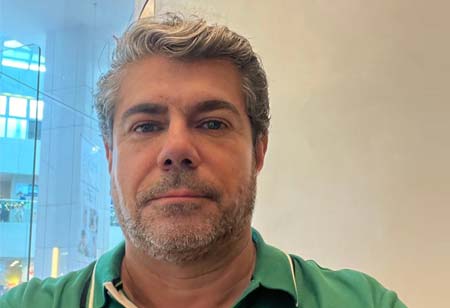

Thank you for Subscribing to Agri Business Review Weekly Brief

COP28 marked the first time leaders’ worldwide discussed agriculture and global agrifood systems as key solutions to current climate challenges. This comes as the world calls for a reduction in the negative impacts of agriculture on the environment and acknowledges the need for food production to increase drastically over the next few decades to feed a growing global population.
At present, agriculture is responsible for over 20% of greenhouse gas emissions worldwide, and food systems account for 70% of all freshwater use. Cognizant of this impact, there has been a strong push from the world’s biggest food players to accelerate regenerative agriculture, with many being signatories to the COP28 Action Agenda on Regenerative Landscapes and committing to source significant proportions of their key ingredients through regenerative agriculture methods.
Similarly, this is a key focus for Syngenta. It is critical that our efforts guide the evolution of the food production system into one that nurtures and helps to restore soil health, protects the climate, water resources, and biodiversity, and enhances the productivity and profitability of farmers.
It is critical that our efforts guide the evolution of the food production system into one that nurtures and helps to restore soil health, protects the climate, water resources, and biodiversity, and enhances the productivity and profitability of farmers.
For regenerative agriculture to be successfully adopted at scale across Asia, a key factor will be the inclusion of millions of farmers in this paradigm shift. To this end, CENTRIGO™ Farming Ecosystem was established and has been convening a variety of like-minded partners across the food production chain so that farmers have better access to solutions and information that support them in adopting practices that promote healthy soils, encourage crop diversification and make suitable use of the right inputs such as fertilizers, seeds, and crop protection, including biologicals.
Unfortunately, farmers in Asia still lack end-to-end support throughout their farming journey. As such, they lack awareness of the benefits of adopting regenerative agriculture practices, and this is compounded by not only limited access to services, including financing to utilize the necessary tools, but also the uncertainty of return on investment from engaging in regenerative agriculture practices unfamiliar to them.
To address the various challenges deterring farmers from understanding and adopting regenerative agriculture practices, CENTRIGO™ serves as a one-stop shop that offers the right inputs, agronomic advisory, technologies, and services. This includes access to financing and services such as mechanization, spraying, and connection to buyers.
Together with the CENTRIGO™ team in Okara, Pakistan, one of many farmers who adopted the recommended protocols, following sustainable practices and incorporating technology such as precision application, not only observed higher yields of sesame on his 20 acres of farmland but also improved the quality of the harvest to meet the standards required for export to international markets. For the farmer, this meant that he was able to sell the sesame production at a premium price and earn a higher income.
In India, basmati rice farmers who worked with CENTRIGO™ were introduced to using Alternate Wetting Drying (AWD) pipes on their farms as part of the recommended protocol. AWD is a water-saving technology that helps farmers reduce irrigation water consumption in their fields by 30% on average without compromising on yield. Building on the traction, CENTRIGO™ will continue to reach more farming communities and help them sustainably produce basmati rice.
These two examples are clear indicators that much more can be done to tap into the potential of farming to scale regenerative agriculture practices for a positive impact. The close collaboration of CENTRIGO™ with farmers across the region has provided valuable insight and confirms that certain requirements need to be met for the successful implementation of projects promoting regenerative agriculture. Mainly, close connectivity to farmers to provide guidance and direct support and multi-stakeholder partnership. While transitioning to a more sustainable future for agriculture and farming is a complex challenge, CENTRIGO™ will continue to play its part in catalyzing win-win situations through an ecosystem approach and drive this agenda forward.